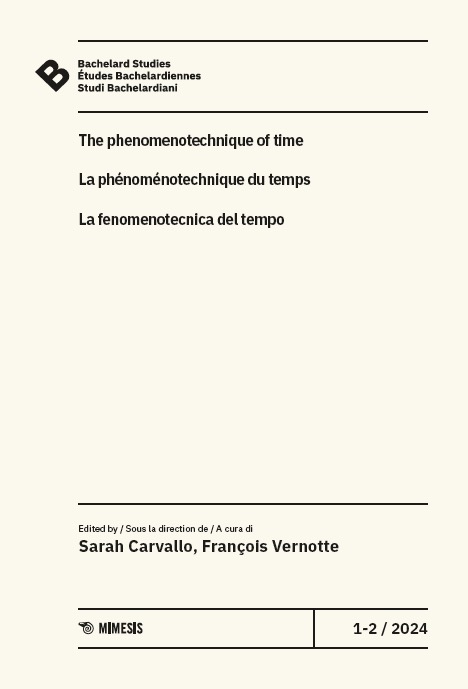Abstract
This article takes into consideration the theses of Gaston Bachelard presented in Le nouvel esprit scientifique (1934) and La philosophie du non (1940) to address the question: why does science construct the world? Taking seriously the concept of a science réalisante (“realizing science”), it seeks to reassess this idea in light of the challenges of the 21st century. Science and technology emerge as the primary sources of our material environment, a phenomenon that can be interpreted through Marxian approaches developed in the second half of the 20th century. The analysis focuses on a critique of Bachelard’s concept of phénoménotechnique, putting it into dialogue with the notions of materialized ideology, developed by Guy Debord in the 1960s, and real abstractions, central to the critique of value-dissociation. While a connection between Bachelard and Debord has been previously suggested concerning La poétique de l’espace and the Situationist practice of the dérive, this study shifts its focus to phénoménotechnique. Drawing on my research experience in the field of frequency metrology and atomic clocks, this article offers a perspective that links scientific practice with the broader historical and social context of modernity. By employing Debordian and Marxian concepts, the study aims to explore the contemporary relevance of phénoménotechnique and its potential for understanding the active role of science in shaping the material world.

